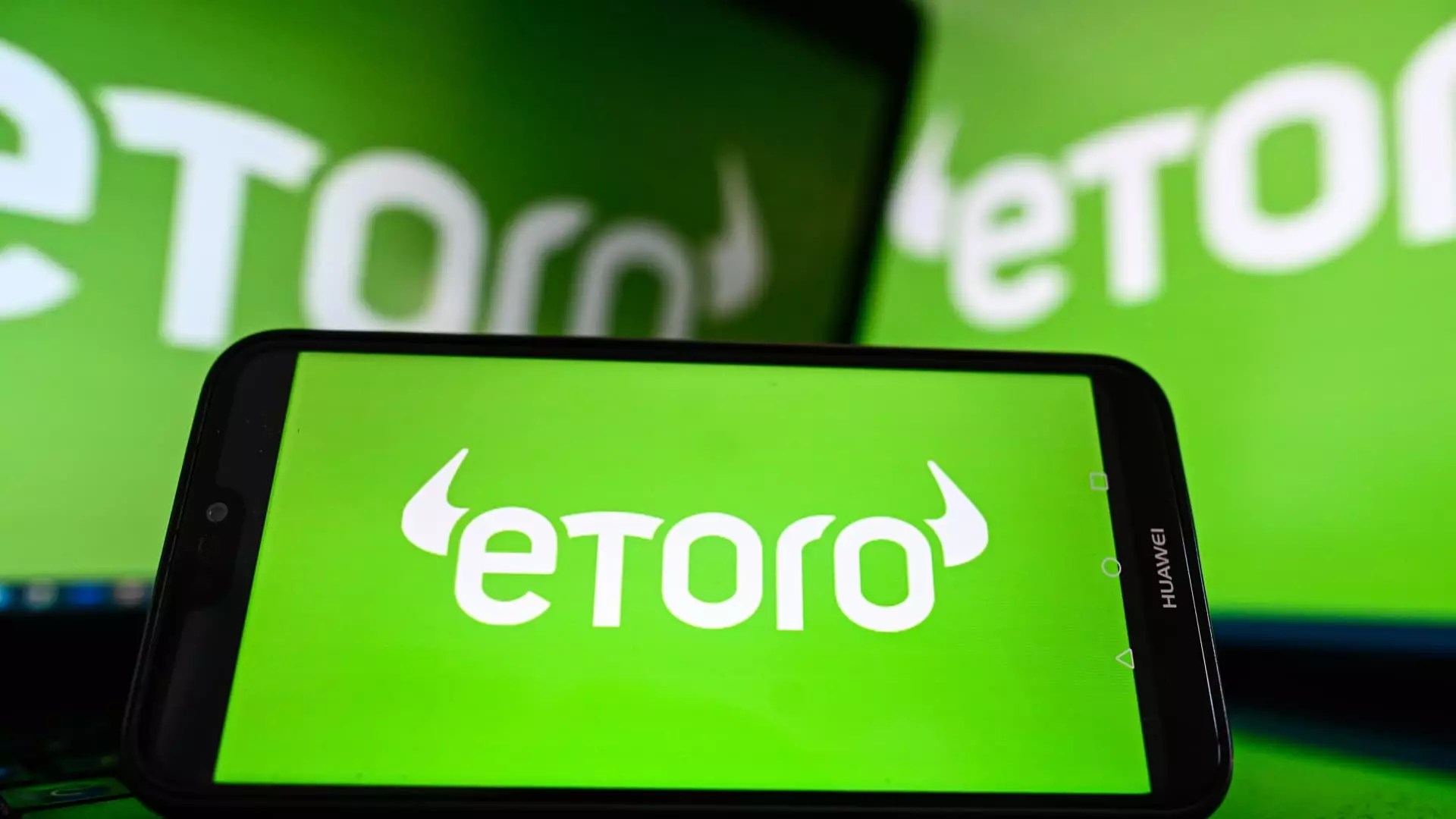eToro, a rising titan in the brokerage domain, made a significant splash on the Nasdaq with its recent IPO, raising an impressive $310 million. The initial trading debut saw shares open at an exhilarating $69.69, representing a staggering 34% increase from the listed IPO price of $52. Such a high opening not only reflects investor exuberance but also sets the stage for vital discussions on market dynamics, especially after a prolonged lull in IPO activity. eToro’s ability to generate a $5.6 billion market capitalization within hours signifies a palpable market shift—one that faintly reverberates with optimism in these uncertain financial waters.
This moment is paramount, not just for eToro, but it carries implications for the broader tech and financial sectors. Investors who had their bets on a renaissance in IPO launches amid economic unsteadiness may find validation in eToro’s success, highlighting an increasing appetite for innovative financial platforms. It represents a potential renaissance period for public offerings, and observers will be keen to see if this momentum ignites a broader resurgence among similar firms.
The Bigger Picture: Underlying Market Forces at Play
CEO Yoni Assia’s remarks about seeing “the light at the end of the tunnel” regarding market corrections are emblematic of the cautious optimism that has overtaken much of Wall Street recently. Dubbed a Robinhood competitor, eToro has managed to navigate treacherous market terrain where others faltered. As President Donald Trump’s potential return to the political fray injected uncertainty—especially with tariff problems lingering—a rise in market confidence appears poised to reinvigorate investor engagement in IPOs.
However, while optimism is warranted, one must still tread carefully. Interest rates, inflation, and geopolitical tensions remain considerable threats that can easily upend this newfound euphoria. Assia’s caution about waiting for stabilization in the CBOE Volatility Index points to a broader landscape of volatility, where success is uncertain, and even well-positioned companies aren’t entirely shielded from the whims of market sentiment.
A Window into eToro’s Business Model: Success Factors and Risks
eToro’s financial architecture, particularly its revenue generation through trading-related fees and non-trading activities, is a salient factor in its recent triumph. The leap from a mere $15.3 million net income in 2023 to nearly $192.4 million in 2024 is no small feat and serves as a beacon for volatility-driven investors seeking that next big opportunity. Furthermore, the acceleration in crypto-related revenues—over $12 million—indicates that eToro is strategically capitalizing on one of the fastest-growing sectors in finance today.
Yet, there’s a double-edged sword to this success; cryptocurrency’s inherent volatility also introduces an element of risk that many traditional investors remain wary of. The forecast of a dip in crypto contributions down to 37% could also signal market adjustments that may impact earnings in the upcoming quarters. This impending volatility creates a conundrum, as the very aspects that excite millennial investors also hold the potential for perilous downturns.
Competitive Landscape: eToro’s Position and Future Outlook
As the market opens to a slew of potential players, echoed by Chime’s recent prospectus filing and Hinge Health’s IPO kick-off, eToro’s entry might serve as a litmus test for resilience and innovation in the fintech sector. With established investors like Spark Capital and BRM Group backing the firm, eToro’s strategic maneuvering will be scrutinized in tandem with competitors armed with agile business models.
Moreover, unlike peers who might be bogged down by traditional banking concepts, eToro exists in a digital-first landscape that demands rapid adaptation and innovation. In a realm where user experience can make or break a financial platform, eToro needs to not only maintain its growth trajectory but continually innovate to edge out competition. The weight of such expectations sets the stage for a riveting competition where adaptability and foresight will dictate leaders from mere followers in the fintech field.
In this interconnected world, eToro’s ultimately pivotal role as a harbinger for future market trends fosters engaged dialogue around the shifting paradigms of wealth creation. Investors, policymakers, and tech enthusiasts alike are watching, discerning whether eToro’s success is sustainable or a mere flash in the pan. Only time will tell whether these signs of renewed enthusiasm will usher in a long-term change or if caution should still prevail amidst the rallying investors.


Leave a Reply